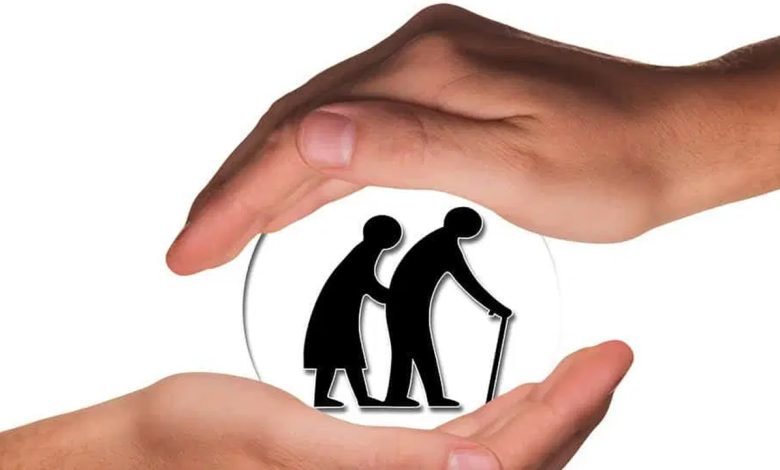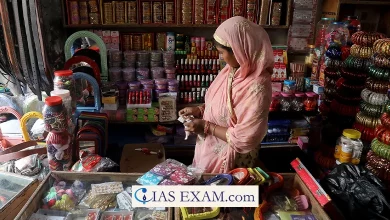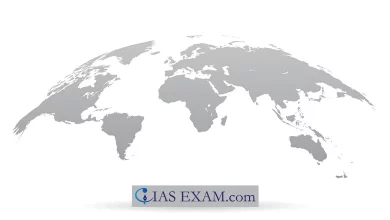Maintenance and Welfare of Parents and Senior Citizens Act (MWPSC)
[Syllabus- GS Paper- 2 ,Government policies,social justice]

Context– Recent studies have shown the high incidence of elderly abuse in India. The Maintenance and Welfare of Parents and Senior citizens enacted in 2007 aims to socially and financially secure the elderly amidst the rising apathy of heirs towards the elderly.
Key Highlights:
- The National Sample Survey of India (NSS) on the condition of the elderly conducted in 2004 revealed that a significant portion of the elderly depend socially and financially on their children.
- According to the census 2011, India has 104 million people aged 60 years and above with 53 million and 51 million as female and male respectively.
- A survey carried by Help age india on elder abuse in 2015 reports that 73% of the younger population accepts that elder abuse exists.
- Instances of coming across elder abuse are as high as 32.5% among relatives , 21% among friends and 20% among neighbors.
- The average life span increasing with sustained healthcare, the elderly population is estimated to rise to 173 million by 2026.
- The right to dignity , health and shelter are part of article 21 of the constitution and hence are the basic fundamental right of all citizens including the senior citizens.
About the Maintenance and Welfare of Parents and Senior Citizens Act (MWPSC)
- This act is also known as the senior citizens act and was enacted in 2007 by the parliament by the Ministry of Social Justice and Empowerment .
- The objective was to strengthen the provisions for welfare and maintenance of the elderly.
- It made adult children and heirs provide parents with a monthly allowance legally binding.
- It made abandoning a senior citizen a criminal offense.
- The act provided for the state government to set up an old age home in each district of state with medical health care.
- The act made the transfer of property movable or immovable to the heirs void on grounds of coercion or fraud if the heir failed to provide basic care and amenities to the senior citizens.
- It defined parents to be biological, adoptive or step.
- The act was amended in 2019 and expanded the concept of ‘children’.
- It removed the upper limit of 10000 rupees as the maintenance to be provided.
- It expanded the concept of welfare to be inclusive and with the idea of “dignified life’ i.e both mental and physical health.
Shortcoming of the act- the definition of abuse is ambiguous .
- Indoor settlement in most cases on abuse complaints.
- Tribunals on settling issues in elderly abuse lack in many areas.
- The act needs to provide harsher punishments and policy makers should have a no tolerance approach on elder abuse.
- The digital illiteracy among the elderly is serious issue that prevents the elderly from reaching out through online portals/ helplines and also the persistent fear of long legal procedures
Challenges faced by the elderly–
- financial and social crisis among the elderly population
- vulnerable to all forms of abuse- physical, mental, sexual, and verbal by members of their own family and others
- abandonment, destitution and problems in accessibility to healthcare and lack of emotional support.
Government initiatives–
- Indira Gandhi old age pension scheme- providing 200-500 rupees per month to senior citizens under the BPL category.
- Pradhan mantri vaya vandana yjana- social security scheme for elderly aaagainst a future fall in their interest income due to the uncertain market conditions, with assured pension of 8% through Life Insurance Corporation (LIC) of India. As per the scheme, on payment of an initial lump sum amount ranging from a minimum purchase price of Rs. 1, 50,000/- for a minimum pension of Rs 1000/- per month to a maximum purchase price of Rs. 7, 50,000/- for maximum pension of Rs. 5,000/- per month, subscribers will get an assured pension based on a guaranteed rate of return of 8% per annum, payable monthly.
- National helpline for senior citizens- 14567
- Madrid international plan of action on aging (MIPAA) – plan for policy makers at global level suggesting governments ngos and others on dealing with the elderly.
Way forward. The UN International Decade of healthy aging is 2021-2030. The decade needs all the stakeholders to strive for human rights of the elderly, ensuring their dignity and providing them protection against abuse, so that India turns into a nation for older people. There needs to be a dialogue between social workers, citizens and physicians before legal action. It is time for the younger generations to serve as the gatekeepers of healthy and happy aging. Social and media awareness about the issue is the need of the hour.





.png)



